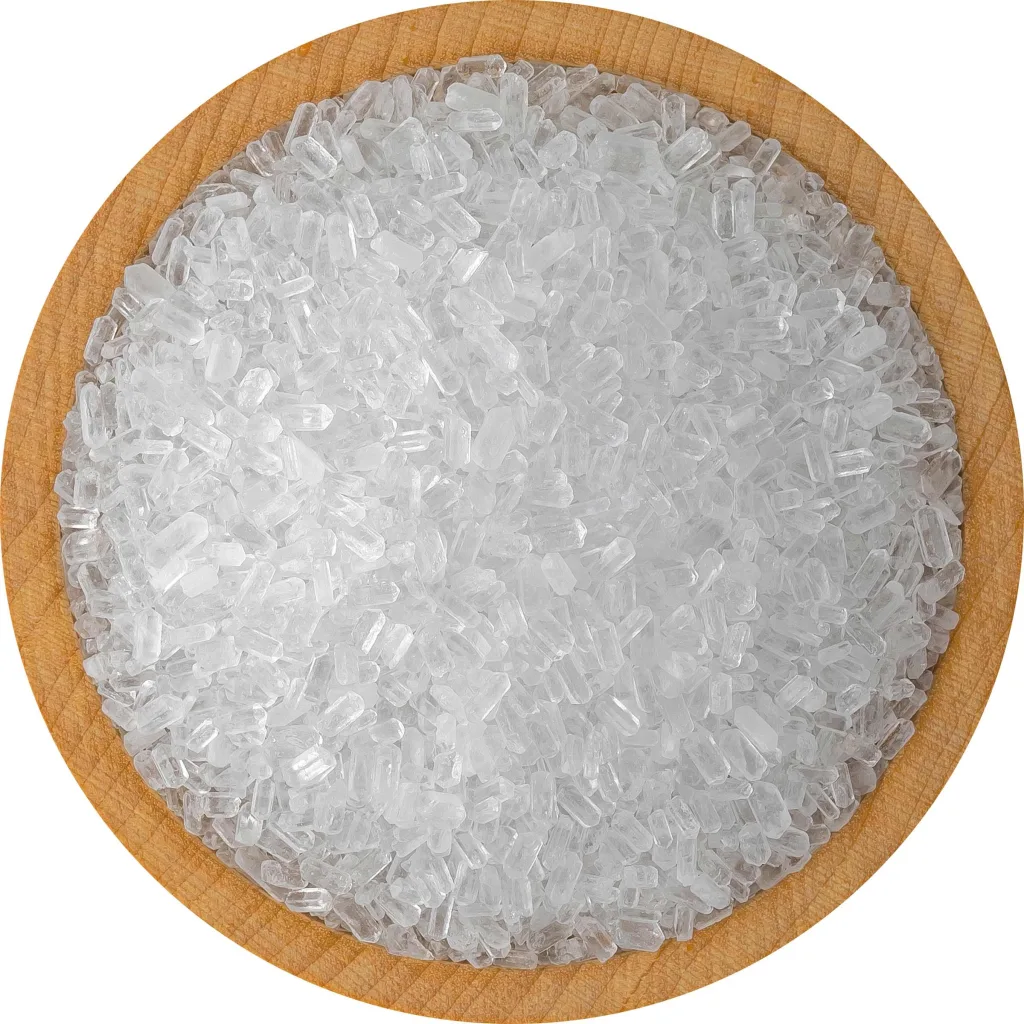Epsom salt, also known as magnesium sulfate, is a versatile and widely used compound that has various benefits. While it is commonly used in bath salts and as a natural remedy for different ailments, many people wonder if it can be used to melt ice. In this article, we will explore the properties of Epsom salt and its effectiveness in melting ice.
Firstly, it is important to understand how ice melters work. Ice melters are substances that lower the freezing point of water, causing ice to melt at lower temperatures. This is achieved by disrupting the crystal structure of ice, leading to a faster melting process. Common ice melters include rock salt (sodium chloride), calcium chloride, and magnesium chloride.
Now, let’s talk about Epsom salt. Epsom salt is a compound made up of magnesium, sulfur, and oxygen. It is named after the town of Epsom in England, where it was first discovered in natural springs. Epsom salt is widely used for its numerous health benefits, as it is believed to help with muscle relaxation, reducing inflammation, and improving skin health.
When it comes to melting ice, Epsom salt does have some effectiveness, although it may not be as efficient as other ice melters. Epsom salt, like other salts, lowers the freezing point of water. When it is applied to ice, it creates a brine solution that has a lower freezing point than pure water. This causes the ice to melt at a faster rate.
However, it is important to note that the effectiveness of Epsom salt as an ice melter is limited. This is because Epsom salt has a higher freezing point depression compared to other salts commonly used for this purpose, such as rock salt or calcium chloride. As a result, it may not be as effective in extremely cold temperatures or in thick layers of ice.
Additionally, Epsom salt is hygroscopic, which means it absorbs moisture from the air. This can make it clump together and become less effective over time. It is recommended to store Epsom salt in a dry place to maintain its effectiveness as an ice melter.
While Epsom salt can be used to melt ice to some extent, it may not be as efficient as other ice melters. If you are looking for a more effective solution to melt ice, you may want to consider using rock salt or calcium chloride. However, if you have Epsom salt readily available and the ice is not too thick or in extremely cold temperatures, it can be used as a temporary solution. As always, it is important to follow proper safety precautions when using any ice melter and to consult the manufacturer’s instructions.
Will Epsom Salt Hurt Concrete?
Epsom salt can potentially harm concrete. Epsom salt, also known as magnesium sulfate, is a chemical compound that can react with the minerals present in concrete. When Epsom salt comes into contact with concrete, it can cause a chemical reaction called sulfate attack.
Sulfate attack occurs when sulfates from external sources, such as Epsom salt, penetrate the concrete and react with the calcium aluminate compounds present in the cement. This reaction leads to the formation of expansive compounds, which can cause the concrete to crack, crumble, or deteriorate over time.
It is important to note that the severity of the damage caused by Epsom salt depends on various factors, including the concentration of sulfates, the duration of exposure, and the porosity of the concrete. Generally, non-porous surfaces are less susceptible to sulfate attack compared to porous surfaces.
To protect concrete from potential damage caused by Epsom salt or other salts, it is advisable to take preventive measures. These may include:
1. Limiting exposure: Avoid prolonged contact between Epsom salt or other salts and concrete surfaces.
2. Regular cleaning: Promptly remove any spills or residues of Epsom salt or other salts from concrete surfaces to prevent prolonged exposure.
3. Sealing the surface: Applying a suitable sealant or coating to the concrete surface can help reduce its porosity and minimize the potential for sulfate attack.
4. Proper drainage: Ensure that the concrete has adequate drainage systems in place to prevent the accumulation of water, which can exacerbate sulfate attack.
By following these preventive measures, you can help protect your concrete from potential damage caused by Epsom salt or other salts.

What Will Instantly Melt Ice?
There are several substances that can instantly melt ice due to their unique properties. Here are some examples:
1. Salt: Salt, also known as sodium chloride, is commonly used to melt ice on roads and sidewalks during winter. When salt is sprinkled on ice, it lowers the freezing point of water, causing the ice to melt. The salt dissolves in the thin layer of liquid water that forms on the ice, creating a brine solution with a lower freezing point than pure water. This accelerates the melting process.
2. Calcium chloride: Calcium chloride is another chemical compound frequently used for de-icing purposes. It is more effective than salt at melting ice because it has an even lower freezing point depression. Calcium chloride releases heat when it dissolves in water, further aiding in melting the ice.
3. Rubbing alcohol: Rubbing alcohol, also known as isopropyl alcohol, has a much lower freezing point than water. When applied to ice, it quickly absorbs heat from the surrounding environment, causing the ice to melt rapidly. However, it is important to note that rubbing alcohol should be used in small quantities and with caution, as it can be flammable.
4. Hot water: Pouring hot water over ice can also lead to instant melting. The high temperature of the water transfers heat to the ice, causing it to melt rapidly. However, this method should be used with care, as the sudden temperature change may cause the ice to crack or shatter.
5. Baking soda: While not as effective as salt or calcium chloride, baking soda can also help melt ice. Baking soda lowers the freezing point of water and can help accelerate the melting process when sprinkled on ice. However, it should be noted that baking soda is less potent compared to other de-icing agents.
It is important to remember that these substances should be used responsibly and in appropriate quantities. Additionally, when using chemicals to melt ice, it is advisable to take precautions to protect surfaces and the environment from potential damage.
Can I Mix Epsom Salt In Ice?
It is possible to mix Epsom salt in ice. Epsom salt, also known as magnesium sulfate, is safe to use in an ice bath. In fact, there are several reasons why you might want to add Epsom salt to your ice bath.
1. Magnesium supplementation: Epsom salt is a good source of magnesium, and soaking in an ice bath with Epsom salt can help supplement your magnesium levels. Magnesium is an essential mineral that plays a crucial role in various bodily functions, including muscle relaxation and recovery. Soaking in an ice bath with Epsom salt may enhance the benefits of the cold therapy by providing a source of magnesium to your body.
2. Muscle recovery: Ice baths are commonly used by athletes and individuals involved in intense physical activities to aid in muscle recovery. The cold temperature helps reduce inflammation and muscle soreness. Adding Epsom salt to the ice bath can further enhance the muscle recovery process due to its potential to relax muscles and relieve tension.
3. Relaxation and stress relief: Epsom salt baths are often used for relaxation and stress relief. The addition of Epsom salt to an ice bath can provide a soothing and calming effect, promoting relaxation and helping to alleviate stress.
It is important to note that when using Epsom salt in an ice bath, it is best to dissolve the salt in warm water before adding it to the ice. This ensures that the salt is evenly distributed throughout the bath and maximizes its effectiveness.
Mixing Epsom salt in ice is safe and may offer additional benefits when taking an ice bath. It can provide magnesium supplementation, aid in muscle recovery, and promote relaxation and stress relief. Remember to dissolve the salt in warm water before adding it to the ice for optimal results.
What Melts Ice The Fastest On Driveway?
Rock salt is the most effective and cost-efficient ice melter for driveways. It works quickly by lowering the freezing point of ice to around zero degrees Fahrenheit. Here are some key points to consider:
1. Rock salt: Rock salt, also known as sodium chloride, is a widely used ice melter for driveways. It is readily available and affordable compared to other options.
2. Freezing point reduction: Salt works by lowering the freezing point of water. When salt is applied to ice, it creates a brine solution with a lower freezing point than pure water. This causes the ice to melt and revert back to liquid form.
3. Fast-acting: Rock salt works relatively quickly to melt ice on driveways. It starts melting the ice upon contact and continues to work as long as temperatures remain above the freezing point created by the salt.
4. Effectiveness: Rock salt is effective in melting thin to moderate ice layers on driveways. However, it may not be as effective for thick ice or in extremely cold temperatures.
5. Safety precautions: While rock salt is effective, it’s important to use it responsibly. Excessive use of salt can damage concrete and vegetation. It’s recommended to follow the manufacturer’s instructions and use salt sparingly.
Rock salt is a fast-acting and affordable option for melting ice on driveways. It lowers the freezing point of ice, causing it to melt and revert back to water. However, it’s important to use salt responsibly and follow safety precautions to avoid potential damage.

Conclusion
Epsom salt is a versatile and beneficial addition to various aspects of our lives. Not only is it safe and fun for use in the forge, but it also offers potential health benefits by supplementing our magnesium levels. The use of Epsom salt in ice baths can lower the freezing point of the ice, resulting in quicker melting and providing a more effective and enjoyable experience. However, it is important to note that chloride salts such as table salt and road salt are not safe and should not be used in similar applications. Epsom salt, with its numerous uses and advantages, proves to be a valuable and reliable choice for various needs.
